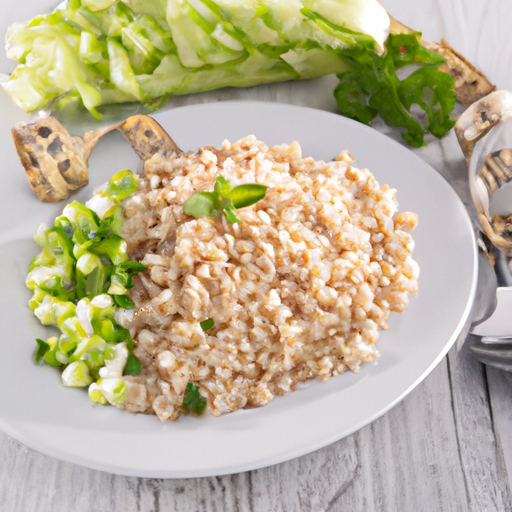Collagen supplements have gained significant popularity in recent years, promising to improve skin elasticity, joint health, and muscle recovery. However, for individuals with specific dietary restrictions, the question arises as to whether these supplements can be safely consumed.
This article explores the compatibility of collagen supplements with various dietary limitations, shedding light on the potential benefits and considerations for those seeking to incorporate them into their health regimen.
Click Here if You Prefer to Listen to Quick Summary Content of the Blog Post about The Collagen Dietary
Effects of collagen supplements on dietary restrictions
Understanding dietary restrictions
When it comes to dietary restrictions, it is important to understand the limitations and guidelines that individuals need to follow in order to maintain their health and well-being. Dietary restrictions can vary widely from person to person, with some individuals needing to avoid certain food groups or ingredients due to allergies, intolerances, religious beliefs, or personal choices.
Types of collagen supplements
Collagen supplements are a popular choice for many individuals looking to promote skin health, joint health, and overall well-being. These supplements come in various forms, including powders, capsules, and liquids, and are typically derived from animal sources such as bovine or marine collagen.
Considerations for dietary restrictions
When considering collagen supplements in relation to dietary restrictions, it is crucial to understand the specific restrictions and limitations each individual may have. Some common dietary restrictions include gluten-free diets, vegetarian or vegan diets, lactose intolerance, kosher or halal diets, paleo or Whole30 diets, low-carb diets, diabetic diets, and weight loss diets. Let’s take a closer look at how collagen supplements can fit into each of these dietary restrictions.
Collagen supplements and gluten-free diets
Is collagen gluten-free?
Individuals following a gluten-free diet need to be cautious about consuming products that may contain gluten. Gluten is a protein found in wheat, barley, and rye, and it can cause digestive issues and other adverse reactions in individuals with gluten sensitivities or celiac disease. The good news is that collagen itself is gluten-free.
Choosing gluten-free collagen supplements
While collagen itself may be gluten-free, it is crucial to consider the potential for cross-contamination during the manufacturing process. To ensure that the collagen supplement is truly gluten-free, it is recommended to choose products that are certified gluten-free and undergo rigorous testing to confirm their gluten-free status. Reading product labels and looking for certifications from reputable gluten-free organizations can help individuals make informed choices.
Label reading and certifications
When selecting collagen supplements for a gluten-free diet, reading product labels becomes essential. Look for products that explicitly state “gluten-free” on the packaging. Additionally, look for certifications from organizations such as the Gluten-Free Certification Organization (GFCO) or the National Celiac Association (NCA), as these certifications ensure that the product has undergone testing to meet gluten-free standards.
Collagen supplements and vegetarian or vegan diets
Understanding collagen sources
Collagen is primarily derived from animal sources, such as bovine (cow) or marine collagen (fish). This presents a challenge for individuals following vegetarian or vegan diets, as these diets exclude animal products.
Plant-based collagen alternatives
For those following a vegetarian or vegan diet, plant-based collagen alternatives are available. These alternatives typically contain ingredients such as amino acids, vitamins, and minerals that support collagen production in the body. Look for plant-based collagen supplements that contain ingredients like vitamin C, proline, and glycine, as these nutrients are essential for collagen synthesis.
Vegan-friendly collagen supplements
To ensure that the collagen supplement is suitable for a vegetarian or vegan diet, look for products that explicitly state that they are vegan or plant-based. It is also beneficial to review the product’s ingredient list to verify that there are no animal-derived ingredients included. Some vegan-friendly collagen supplements may be labeled as “collagen boosters” or “collagen support,” indicating that they provide the necessary nutrients for the body to produce collagen naturally.

Collagen supplements and lactose intolerance
Is collagen lactose-free?
Individuals with lactose intolerance have difficulty digesting lactose, a sugar found in milk and dairy products. It is important to determine whether collagen supplements contain lactose to avoid discomfort or adverse reactions.
Lactose-free collagen supplement options
Many collagen supplements are lactose-free, as they are typically derived from the hides, bones, or scales of animals rather than milk or dairy products. However, it is crucial to check the product labels for any potential lactose-containing ingredients. Opting for hydrolyzed collagen, which is broken down into smaller peptides and has minimal lactose content, may be a suitable choice for those with lactose intolerance.
Vegetarian sources of collagen
Individuals with lactose intolerance can also consider vegetarian sources of collagen. Plant-based collagen alternatives, as mentioned earlier, can provide the necessary nutrients for collagen production without the need for animal-derived sources. These options can be a great alternative for individuals looking to avoid lactose while still benefiting from collagen supplementation.
Collagen supplements and kosher or halal diets
Certifications and considerations
For individuals following kosher or halal diets, it is crucial to ensure that collagen supplements meet the dietary requirements set forth by these religious dietary guidelines. This often involves considering the source and production process of the collagen supplement.
Kosher or halal friendly collagen sources
To adhere to kosher or halal dietary guidelines, collagen supplements should come from sources that are deemed kosher or halal. For example, some kosher collagen supplements are derived from kosher-certified animals or marine sources that meet the requirements of kosher laws. Similarly, halal collagen supplements should be sourced from halal-certified animals or marine sources, ensuring compliance with Islamic dietary guidelines.
Finding kosher or halal collagen supplements
When searching for collagen supplements that are suitable for kosher or halal diets, it is important to look for products that display kosher or halal certifications. These certifications indicate that the product has been inspected and approved by the respective certification bodies. Additionally, consulting with a rabbi (for kosher diets) or an Islamic dietary authority (for halal diets) can provide further guidance and assurance.
Collagen supplements and paleo or Whole30 diets
Collagen as a paleo-friendly product
The paleo diet focuses on consuming whole, unprocessed foods that mimic the dietary patterns of our ancestors. Collagen, being a natural protein derived from animal sources, is generally considered paleo-friendly.
Selecting collagen supplements for Whole30
The Whole30 diet is a 30-day program that emphasizes whole foods and eliminates added sugars, grains, legumes, and dairy. Collagen supplements can be a suitable addition to a Whole30 diet, as long as they do not contain any restricted ingredients such as added sugars or dairy-derived additives.
Avoiding additives and fillers
When choosing collagen supplements for paleo or Whole30 diets, it is essential to opt for products that are free from additives, fillers, and artificial ingredients. Reading labels and looking for products that are minimally processed can help individuals select collagen supplements that align with the guidelines of these diets.

Collagen supplements and low-carb diets
Carbohydrate content of collagen supplements
Individuals on low-carb diets, such as the ketogenic diet, need to monitor their carbohydrate intake to maintain a state of ketosis. Collagen supplements are generally low in carbohydrates, making them a suitable choice for those following low-carb diets.
Low-carb options and formulations
When selecting collagen supplements for low-carb diets, it is important to consider the formulation of the product. Some collagen supplements may contain additional ingredients, such as sweeteners or flavorings, that can increase the carbohydrate content. It is advisable to choose unflavored or unsweetened collagen supplements to minimize carbohydrate intake.
Combining collagen with a low-carb diet
Collagen supplements can be easily incorporated into a low-carb diet to help support overall health and well-being. They can be added to various dishes, such as smoothies, soups, or baked goods, without significantly affecting the carbohydrate content of the meal. This makes collagen supplements a versatile and convenient option for individuals following low-carb diets.
Collagen supplements and diabetic diets
Effect on blood sugar levels
For individuals with diabetes, maintaining stable blood sugar levels is crucial. Collagen supplements generally do not have a significant impact on blood sugar levels, as they are primarily protein-based with minimal carbohydrate content.
Choosing diabetic-friendly collagen supplements
When selecting collagen supplements for diabetic diets, it is essential to consider the overall composition of the product. Opt for supplements that are free from added sugars, artificial sweeteners, and carbohydrate-rich ingredients. Unflavored or unsweetened collagen supplements are typically more suitable for individuals with diabetes.
Consulting a healthcare professional
Individuals with diabetes should consult with their healthcare professional before incorporating collagen supplements into their diet. Healthcare professionals can provide personalized advice and guidance regarding the use of collagen supplements and how they may fit into the individual’s overall diabetic management plan.
Collagen supplements and weight loss diets
Collagen as a protein source
Protein plays a vital role in weight loss diets, as it aids in satiety, muscle recovery, and metabolism. Collagen supplements can be a beneficial addition to weight loss diets, as they provide a high-quality source of protein.
Effect on satiety and metabolism
The protein content in collagen supplements can help promote feelings of fullness and reduce appetite, which can be beneficial for individuals looking to manage their calorie intake during weight loss. Additionally, collagen supplementation may support metabolism by promoting muscle maintenance and growth.
Incorporating collagen in weight loss diets
Collagen supplements can be incorporated into weight loss diets in various ways. They can be mixed into smoothies, added to soups or stews, or even used to make homemade protein bars. By incorporating collagen supplements into a well-balanced, calorie-controlled diet, individuals can support their weight loss goals while reaping the benefits of collagen.
Collagen supplements and specific dietary restrictions
Considering specific dietary needs
In addition to the common dietary restrictions mentioned above, individuals may have specific dietary needs or restrictions based on allergies, intolerances, and other health conditions. It is essential to consider these individual requirements when selecting collagen supplements.
Consulting a healthcare professional or dietitian
To ensure that collagen supplements align with specific dietary needs, it is advisable to consult with a healthcare professional or registered dietitian. These professionals can provide personalized recommendations based on an individual’s dietary restrictions, health goals, and overall nutritional needs.
Individualized approach to collagen supplementation
Due to the diverse range of dietary restrictions and individual needs, there is no one-size-fits-all approach to collagen supplementation. It is essential to take an individualized approach, considering dietary restrictions, personal preferences, and health considerations when incorporating collagen supplements into a diet. This can help optimize the benefits of collagen while respecting individual dietary restrictions.
In conclusion, collagen supplements can be a valuable addition to various dietary restrictions when selected and utilized appropriately. Understanding the specific restrictions, considering alternative sources, and consulting healthcare professionals or dietitians are all crucial steps to ensure that collagen supplementation supports overall health and well-being while respecting individual dietary needs.

